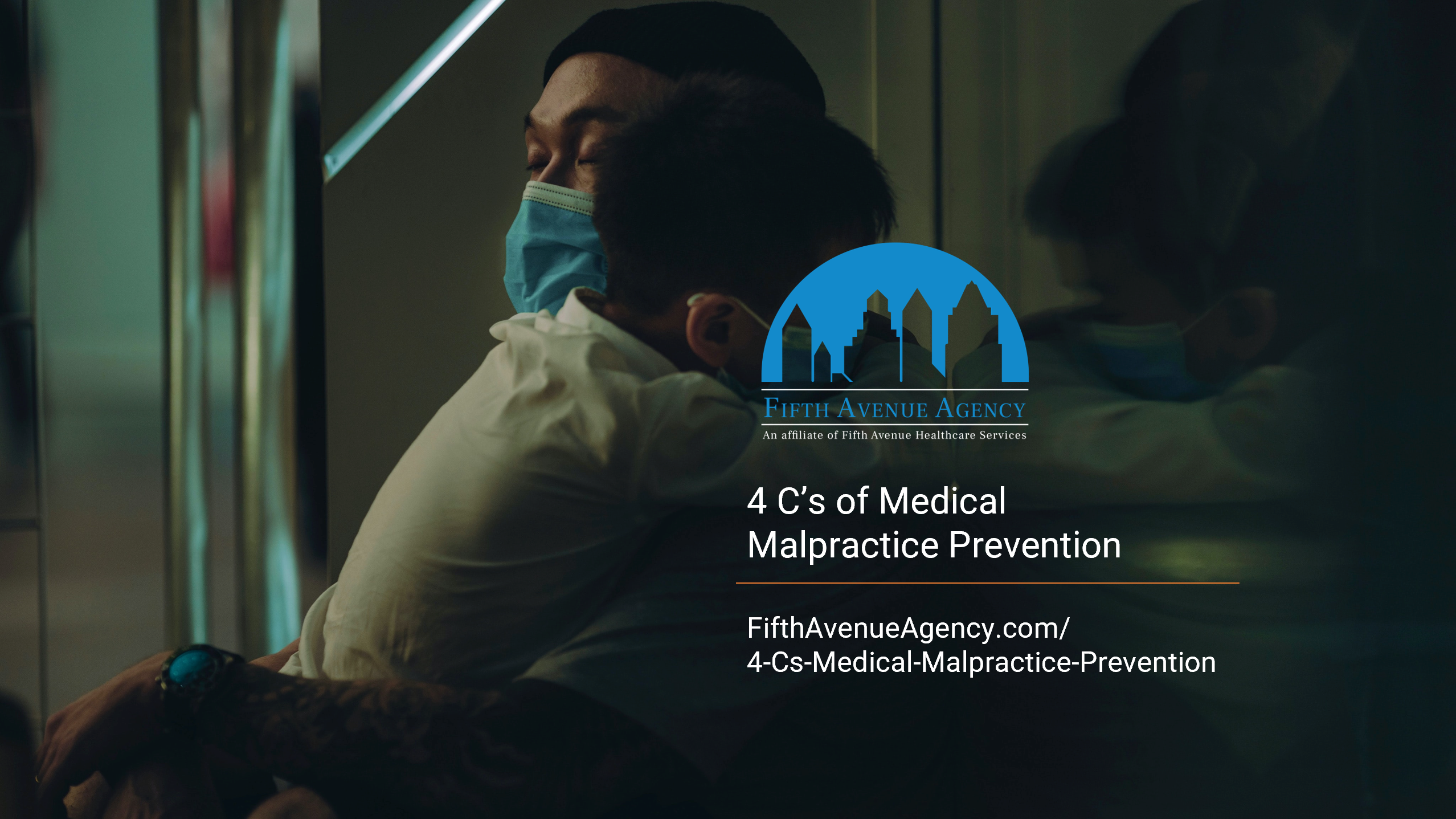A healthcare practitioner is obligated to provide care that meets the standards of practice. When medical malpractice prevention fails, compensation is provided for damages that resulted from their negligence. Unfortunately, medical malpractice claims are too common, affecting 75% of doctors in low-risk specialties.
Medical malpractice litigation doesn’t always happen to completely careless physicians. Physicians are human, and humans make mistakes. However, there are steps doctors can take to reduce their chances of facing a lawsuit.

Knowing what each of the C’s mean and how to implement the methods within each one will help mitigate the risk of negligence.
The 4 C’s of medical malpractice prevention are:
- Compassion
- Communication
- Competence
- Charting
1. Compassion
Compassion, or Caring, is when a doctor cares and sympathizes with their patient. Compassion creates a bond of trust between the two parties. Patients who feel their physician care about them are less likely to sue for malpractice.
Some ways a doctor can display compassion are:
- Being honest with the patient.
- Having open communication.
- Being mindful of nonverbal signals.
- Maintaining good eye contact.
- Using the patient’s name whenever possible.
- Avoiding criticism of other physicians.
Balancing the taxing demands of the job with the need to connect with patients is an essential factor in achieving compassion.
2. Communication
Poor communication can lead to medical malpractice claims. Incorrect or late information is the primary culprit of negligence. A lack of communication also affects a doctor’s compassion and competence, further damaging their reputation.
Proper communication between a doctor and their patient can include:
- Listening to the patient’s concerns.
- Clearly explaining the situation.
- Ensuring the patient understands the issue and course of treatment.
- Encouraging the patient to ask questions.
- Checking the accuracy of a diagnosis and treatment plan, including medication.
- Understanding the patient’s point of view.
Effective communication also extends to colleagues as some cases require multiple health care providers.
3. Competence
Competence is how well a doctor knows their job and the quality of care they perform. Following appropriate standards of care will go a long way in preventing medical malpractice.
A physician should:
- Keep their skills updated within their field of medicine.
- Realize when a situation is beyond their expertise and seek outside guidance.
- Double-check their work for any mistakes.
Good communication also weighs heavily on a doctor’s perceived competence.
4. Charting
Charting is the easiest of the 4 C’s for a doctor to employ. Charting documents a patient’s health history, including any treatment plans. The more detailed the chart, the better. A strong chart is powerful evidence should a medical malpractice case go to court. Only facts should be charted. If something is on the chart, then it happened. The opposite holds true, as stated in the ‘Golden Rule of Charting’ — if something isn’t on the chart, then it didn’t happen.
Following the 4 C’s of medical malpractice prevention mitigates the risk of negligence and provides a record of superior care.
More information about Fifth Avenue Agency
Fifth Avenue Agency specializes in MPLI and medical malpractice insurance, serving 1000s of providers across the country. Fifth Avenue Agency is part of the Fifth Avenue Healthcare Services family. Sister companies include 5ACVO (credentialing and primary source verification specialists) and Primoris Credentialing Network (credentialing and provider enrollment specialists with 54+ health plan and network provider enrollment options).
For information on Fifth Avenue Agency, please visit FifthAvenueAgency.com or Contact Us.















